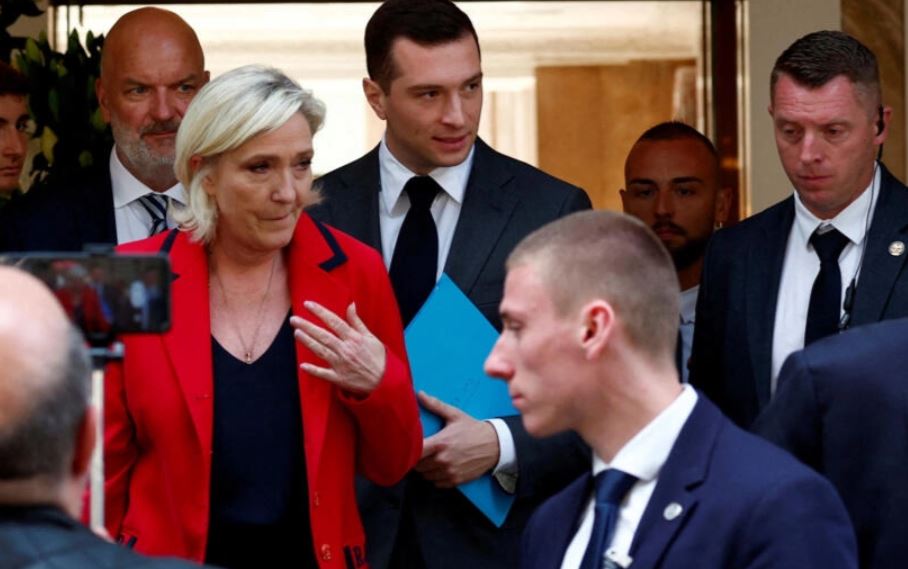Political Turmoil in France
The political landscape in France has recently become a quagmire of uncertainty, impacting European earnings significantly. President Emmanuel Macron’s unforeseen decision to call for Parliamentary elections has incited widespread apprehension. This unexpected move has led to fears of fiscal indiscipline and potential tax hikes, causing a ripple effect across Europe’s financial markets.
Investors had previously been optimistic about European equities, buoyed by the European Central Bank’s lenient policies and an improving economic outlook. However, the announcement of elections has spurred doubts, primarily due to the anticipated rise in taxes and minimum wages under potential new governance.
Investor Sentiments and Market Reactions
Investor confidence has been visibly shaken, with analysts adjusting their earnings forecasts for major French corporations. The broader European market has also felt the tremors, as evidenced by the recent performance of the STOXX 600 index. Since reaching a record high on June 7, the index has experienced a 2.5% decline, with France’s CAC 40 index plunging to its lowest since January.
David Groman, Citigroup’s European equity strategist, noted, “We’re witnessing a typical seasonal pattern of downgrades heading into earnings season, but this time, political risks are exacerbating the situation, undermining a previously strong fundamental narrative.”
European Earnings Outlook
Despite the turbulent political landscape, European companies are poised to report an uptick in their second-quarter earnings. Data from LSEG I/B/E/S indicates a projected 2% increase in earnings and a 1.7% rise in revenues for the pan-European STOXX 600 companies, marking the first growth quarter since early 2023.
The earnings season is set to commence in mid-July, with notable companies such as Barry Callebaut, Richemont, and ABB leading the charge. However, the recent negative outlook from Nike and H&M’s downbeat trading update have already dampened investor confidence in consumer demand.
Impact of French Parliamentary Elections on European Earnings
Marine Le Pen’s far-right National Rally party’s unexpected success in the first round of the French Parliamentary elections represents a significant setback for President Macron. Although the National Rally garnered fewer votes than some polls anticipated, the political shift has still ignited fears of increased economic instability.
Steffen Weyl, head of euro-area funds at Union Investment, commented, “Global investors had shown renewed interest in European markets, but the French election outcome has been a crucial flashpoint, driving substantial outflows from French equity funds.”
Escalating Trade Tensions Between the EU and China
In addition to the political turbulence in France, escalating trade tensions between the European Union and China are further clouding the economic outlook. Brussels’ proposal to impose substantial duties on Chinese-made electric vehicles has provoked retaliatory measures from Beijing, including a dumping probe into EU pork imports.
Nathan Sweeney, Chief Investment Officer of multi-asset at Marlborough, remarked, “The long-term implications of these trade tensions are particularly concerning for Germany, the EU’s primary exporting economy.” Mathieu Savary, Chief European Investment Strategist at BCA Research, echoed this sentiment, emphasizing the need for companies to acknowledge the heightened uncertainty.
The Broader Market Context
As European markets hover near all-time highs, investors are eagerly awaiting reassurance from corporations regarding their optimistic outlooks for the latter half of 2024. Mark Schumann, head of European large-cap mutual funds at DWS Group, observed, “Companies are holding onto their positive guidance for H2, but the market’s elevated levels are intensifying the demand for concrete evidence supporting these projections.”
The euro area’s economic indicators present a mixed picture. While there were signs of stabilization in the manufacturing sector, Citi’s economic surprise index turned negative for the first time since January. Additionally, the Ifo Institute’s survey revealed a surprising dip in German business morale in June, further underscoring concerns about the region’s economic recovery.
Conclusion
The confluence of political uncertainty in France and escalating trade tensions with China is casting a long shadow over European corporate earnings. While companies are poised to report growth in the second quarter, the broader economic and political landscape remains fraught with risks. Investors and market analysts alike will be closely monitoring upcoming earnings reports for signs of resilience or further vulnerability in Europe’s economic outlook.
Summary of Key Learning Points
| Key Learning Points |
|---|
| Political instability in France affects European earnings. |
| Investors’ confidence shaken by potential fiscal indiscipline. |
| STOXX 600 index shows a 2.5% decline from its peak. |
| Second-quarter earnings for European companies expected to rise. |
| Escalating EU-China trade tensions further cloud economic outlook. |
| Mixed economic indicators in the euro area. |
| Investor demand for concrete evidence of positive outlooks. |
Soumya Smruti Sahoo is a seasoned journalist with extensive experience in both international and Indian news writing. With a sharp analytical mind and a dedication to uncovering the truth, Soumya has built a reputation for delivering in-depth, well-researched articles that provide readers with a clear understanding of complex global and domestic issues. Her work reflects a deep commitment to journalistic integrity, making her a trusted source for accurate and insightful news coverage.



